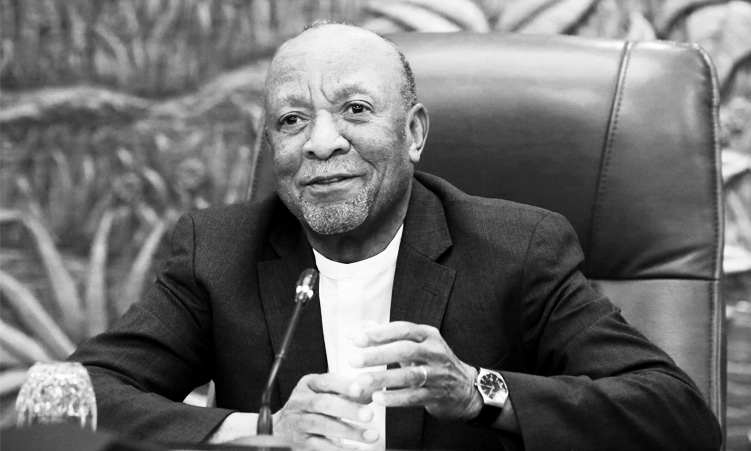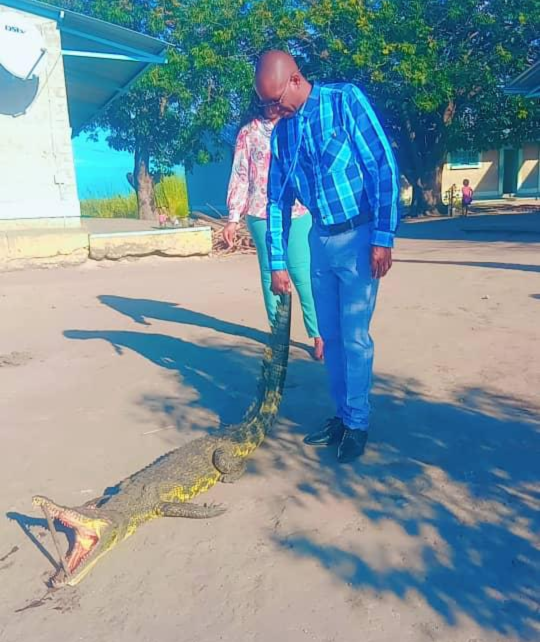President Nangolo Mbumba seems to be striking a lot of the right notes in 2025. He told Cabinet colleagues this week that those who were not re-elected should not hang around begging and hoping for government jobs.
Two weeks ago, Mbumba supported the demarcation commission’s decision not to carve Namibia into more regions than the already messy 14 – because doing so might lead to creating “new institutions for the sake of appointing people to those positions. So, no new governors” will be appointed.
Last week, he ordered that no foreign trips be undertaken until he has left office on 21 March.
Mbumba has no use for a popularity contest to win votes as he retires from active duties and politics in six weeks. Nor is he a spring chicken dashing towards some new exciting toys without a care for what’s happening around him.
The caretaker president has been in government and key ruling positions since 1990 and knows the systems, processes and institutions well enough to point out what has worked well or badly.
Our take on Mbumba’s latest wise words is that he feels liberated by the prospect of leaving the stage and wants to advise his comrades about a few changes that might be meaningful in a future Namibia.
Top among them is the culture of entitlement. Since 1990, Mbumba has been among key bureaucrats and ruling politicians who have created and entrenched a belief that political office and cushy government jobs pay handsomely.
People in the middle to higher positions of government and parastatals are generously paid directly (think salaries and perks) and indirectly through the monetary rewards of official travel – known to help pay off big assets, like houses or luxury vehicles, in the shortest of periods. Banks love them as recurring clients.
There are also the patronage rewards of resettlement farms, fishing quotas and mining licences in the name of being “previously disadvantaged”.
In addition to milking taxpayers for personal enrichment, a culture of doing as little as possible has set in at public sector institutions. Even new state entities like the Namibia Investment Promotion and Development Board (NIPDB) have joined the gravy train, paying people better than the private sector from where they hired them and then siphoning travel budgets with chronic jet-setting, sometimes flying to Dubai, United Arab Emirates only to be marooned in hotel rooms to attend conferences via Zoom.
The only concern with Mbumba’s newfound wisdom is: “Are you sincere, Mr President?”
If he was sincere, how does he explain some of the more dubious perks he has gained, such as major infrastructure upgrades on his farm at taxpayer expense?
Mbumba, like the three presidents before him, will draw a retirement package that includes a brand new house valued at tens of millions (Hage Geingob was expected to get a state-funded mansion estimated at between N$35 million to N$80 million) or equivalent cash.
A president gets a tax-free salary which continues into retirement, in addition to having all costs covered by the state. Hence, The Namibian’s constant critique of presidents drawing subsistence and travel allowances (S&Ts) when all costs are already fully covered.
Using conservative calculations, Mbumba would have collected nearly N$2 million during 50 days of travel in less than a year after he replaced Geingob.
What top leaders like Mbumba should do is institute reforms to stop the rot, rather than short-term public relations exercises of issuing temporary moratoriums on wasteful travel that keeps staff from work.
A deep-cleansing culture shift is needed. Government and state-owned entities should not be set up and run in a way that attracts the cream of the country’s professionals away from what should be economically productive industries in the private sector.
As Mbumba points out, politicians should not be “reluctant to leave office”. Instead, they should “be ready to work for” Namibia wherever and in whatever capacity, especially outside of taxpayer-funded jobs.
The government should not be an employment agency for the sake of giving jobs to comrades and cronies.
Stay informed with The Namibian – your source for credible journalism. Get in-depth reporting and opinions for
only N$85 a month. Invest in journalism, invest in democracy –
Subscribe Now!










